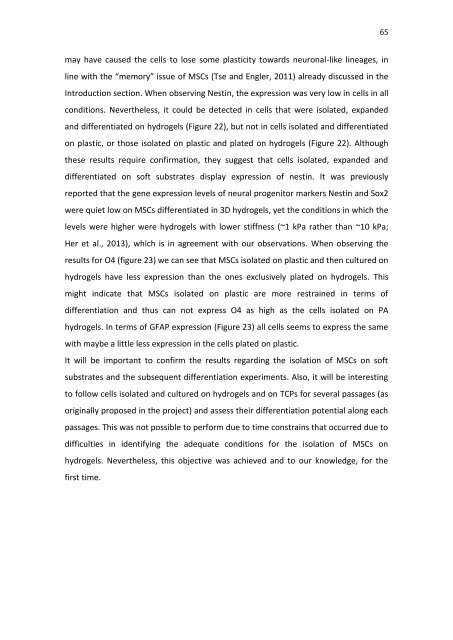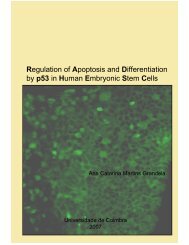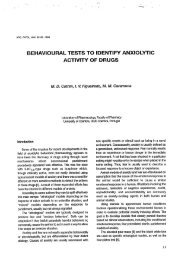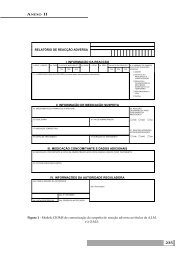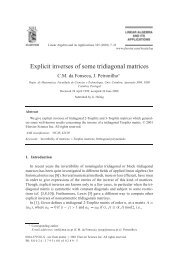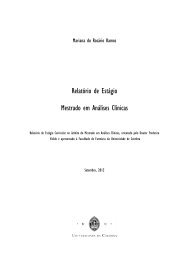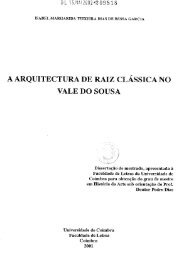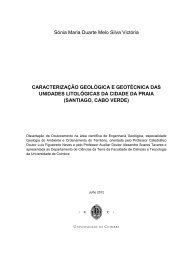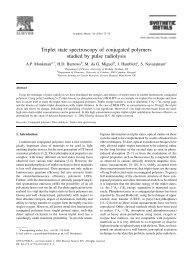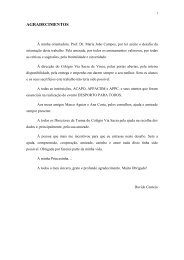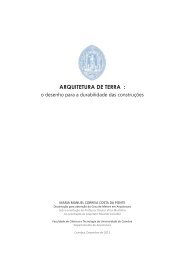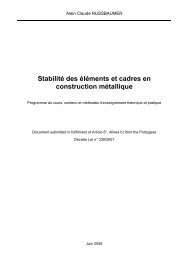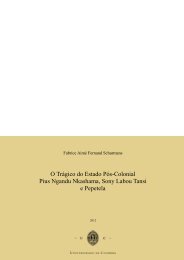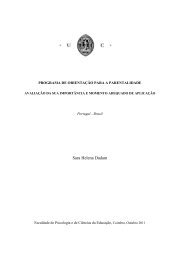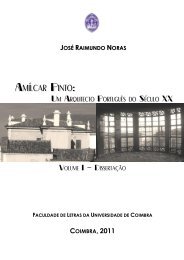DEPARTAMENTO DE CIÊNCIAS DA VIDA ... - Estudo Geral
DEPARTAMENTO DE CIÊNCIAS DA VIDA ... - Estudo Geral
DEPARTAMENTO DE CIÊNCIAS DA VIDA ... - Estudo Geral
Create successful ePaper yourself
Turn your PDF publications into a flip-book with our unique Google optimized e-Paper software.
65<br />
may have caused the cells to lose some plasticity towards neuronal-like lineages, in<br />
line with the “memory” issue of MSCs (Tse and Engler, 2011) already discussed in the<br />
Introduction section. When observing Nestin, the expression was very low in cells in all<br />
conditions. Nevertheless, it could be detected in cells that were isolated, expanded<br />
and differentiated on hydrogels (Figure 22), but not in cells isolated and differentiated<br />
on plastic, or those isolated on plastic and plated on hydrogels (Figure 22). Although<br />
these results require confirmation, they suggest that cells isolated, expanded and<br />
differentiated on soft substrates display expression of nestin. It was previously<br />
reported that the gene expression levels of neural progenitor markers Nestin and Sox2<br />
were quiet low on MSCs differentiated in 3D hydrogels, yet the conditions in which the<br />
levels were higher were hydrogels with lower stiffness (~1 kPa rather than ~10 kPa;<br />
Her et al., 2013), which is in agreement with our observations. When observing the<br />
results for O4 (figure 23) we can see that MSCs isolated on plastic and then cultured on<br />
hydrogels have less expression than the ones exclusively plated on hydrogels. This<br />
might indicate that MSCs isolated on plastic are more restrained in terms of<br />
differentiation and thus can not express O4 as high as the cells isolated on PA<br />
hydrogels. In terms of GFAP expression (Figure 23) all cells seems to express the same<br />
with maybe a little less expression in the cells plated on plastic.<br />
It will be important to confirm the results regarding the isolation of MSCs on soft<br />
substrates and the subsequent differentiation experiments. Also, it will be interesting<br />
to follow cells isolated and cultured on hydrogels and on TCPs for several passages (as<br />
originally proposed in the project) and assess their differentiation potential along each<br />
passages. This was not possible to perform due to time constrains that occurred due to<br />
difficulties in identifying the adequate conditions for the isolation of MSCs on<br />
hydrogels. Nevertheless, this objective was achieved and to our knowledge, for the<br />
first time.


